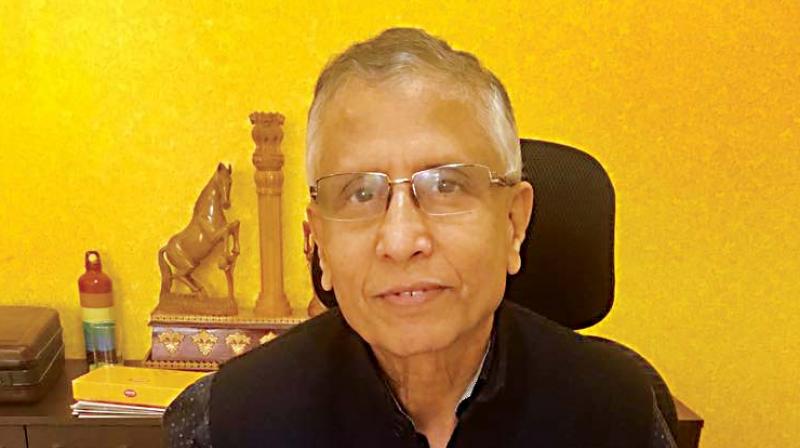Most death row convicts not depressed: D V Guruprasad

Bengaluru: How does a death row convict face the gallows? How does he spend his last days? Does he fear death? These questions led the former director general of police and chief executive officer of M.S. Ramaiah Health Sciences, D.V. Guruprasad, to meet in person 44 condemned convicts in Karnataka and West Bengal prisons. According to him, unlike in the US, where majority of death row convicts suffer from death row syndrome and go into depression fearing the electric chair, the condemned convicts in India do not live under the fear of death, because somewhere they believe that they will escape the noose and their death sentence will be commuted to life, said the former top cop.
“Many of them told me that that barring the two terrorists – Ajmal Kasab and Afzal Guru, who were hanged to death in 2012 and 2013 – only Dhananjay Chatterjee was judicially executed in Kolkata in 2004,” he said. Dr Guruprasad said that barring very few exceptions, most of the condemned convicts in India live like the other convicts in prison with some mandatory legal restrictions. He met 44 condemned convicts in Karnataka and West Bengal in the Hindalga Central prison and Alipore Central Correctional Home for a pioneer study on the mental and emotional health condition of death row convicts.
Last year, he had approached prison officers in Karnataka, Maharashtra, West Bengal and Delhi and had taken the mandatory court permission before venturing on this rather dark study; on the mental and emotional health of condemned convicts. “I often used to wonder how the death row convicts lived their ‘last’ days? What was their mental condition? Were they sad, angry or depressed and had given up on life? I was pleasantly surprised to find out that out of 44 death row convicts, who I met, only four were depressed, but I was told by prison doctors that the onset of depression in all the four was not consequent to their death sentence. I found out that none of them believed that they would be hanged. They looked confident that their sentence would be commuted to life imprisonment. The other major contributing factor for their mental and physical well being in the face of the impending black warrant is that they are not isolated. They live in barracks close to the other convicts. In the US, condemned convicts suffer from death row syndrome, perhaps because of their solitary confinement. In India, they are not isolated completely. Unlike the life convicts, they are now allowed to do vocational work and they have a lot of free time on their hands. They are allowed to meet their family members with permission from the prison officials. In Kolkata, condemned convicts can also make phone calls under official supervision,” Dr Guruprasad said.
The former police officer said that prisons are more like correctional centres and have lot of productive and positive activities for the rehabilitation of inmates. “They have libraries, sports fields, vocational centres and prayer halls. Many voluntary organisations visit the prisons to counsel the prisoners and lend them legal aid free of cost,” he said.

